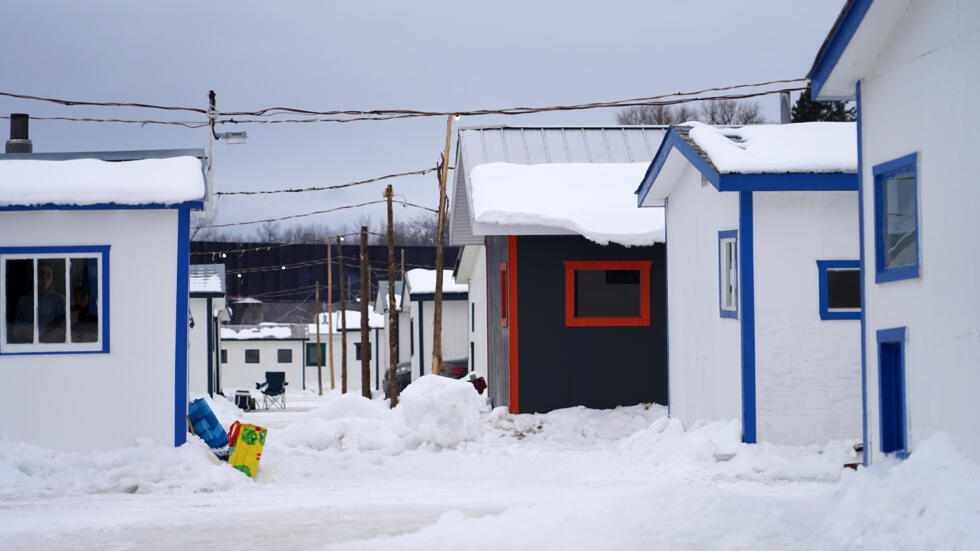News Flash
News Flash

SAINTE-ANNE-DE-LA-PÉRADE, Canada, Feb 6, 2024 (BSS/AFP) - On a frozen river in Canada, a cluster of brightly coloured cabins stand out against the white snow as vehicles crawl to and fro.
Tired of waiting for cold-enough winter weather, ice fishing enthusiasts in Quebec province can finally cast their lines.
The season here usually starts on December 26 and lasts until February 18, but it depends heavily on the onset of cold weather, which is harder to come by these days due to global warming.
This year, the kick-off was pushed back to January 15 in Ste-Anne-de-la-Perade, 90 kilometers (55 miles) south of Quebec City, due to an unseasonably warm winter.
The ice must be at least 30 centimeters (one foot) thick to support the weight of the ice fishing huts.
"It's in the top five of the latest seasons on record," estimates Steve Massicotte of the Association of Fishing and Hunting Centers (called outfitters in Canada) of the Sainte-Anne River.
Losing almost a month of fishing means revenues are cut in half for the region, falling to about Can$3 million ($2.2 million), he said.
Renting these huts costs at least Can$140 per day and varies depending on how many people use it.
Inside one of the heated huts, Alexandra St-Yves, 27, gives a sharp tug on her fishing line and pulls up her catch from beneath the ice: a small fish called an Atlantic tomcod.
"When we see that the line is moving, we are happy!" exclaims the doctoral student in anthropology, who has come to fish with her family every year since childhood.
"There are years when we catch more than a thousand fish," she says.
Christian Hivon took over this fishing centre from his father and recounts what he calls sawtooth winters -- fickle weather with temperatures going up and down -- which prevented him from opening during holiday periods.
This cut his revenue from leasing out cabins by at least a quarter.
"There aren't many solutions because if we don't have ice, we can't set up the cabins," the grey-haired man says with a sigh. "You can't fight nature."
Fishing for small fish from rivers, done for recreational purposes only, usually attracts around 100,000 visitors each year, mainly Quebecers but also Chinese and Russian tourists.
An amateur fisherman who came with family and friends, Simon Provencher, 36, says it is "much easier to catch fish here than real fishing."
"The fish are biting," he said.
According to Environment Canada, temperatures in the first two months of winter have been milder across Quebec, which meant no snow for Christmas. In December and January, temperatures were on average four degrees Celsius above normal.